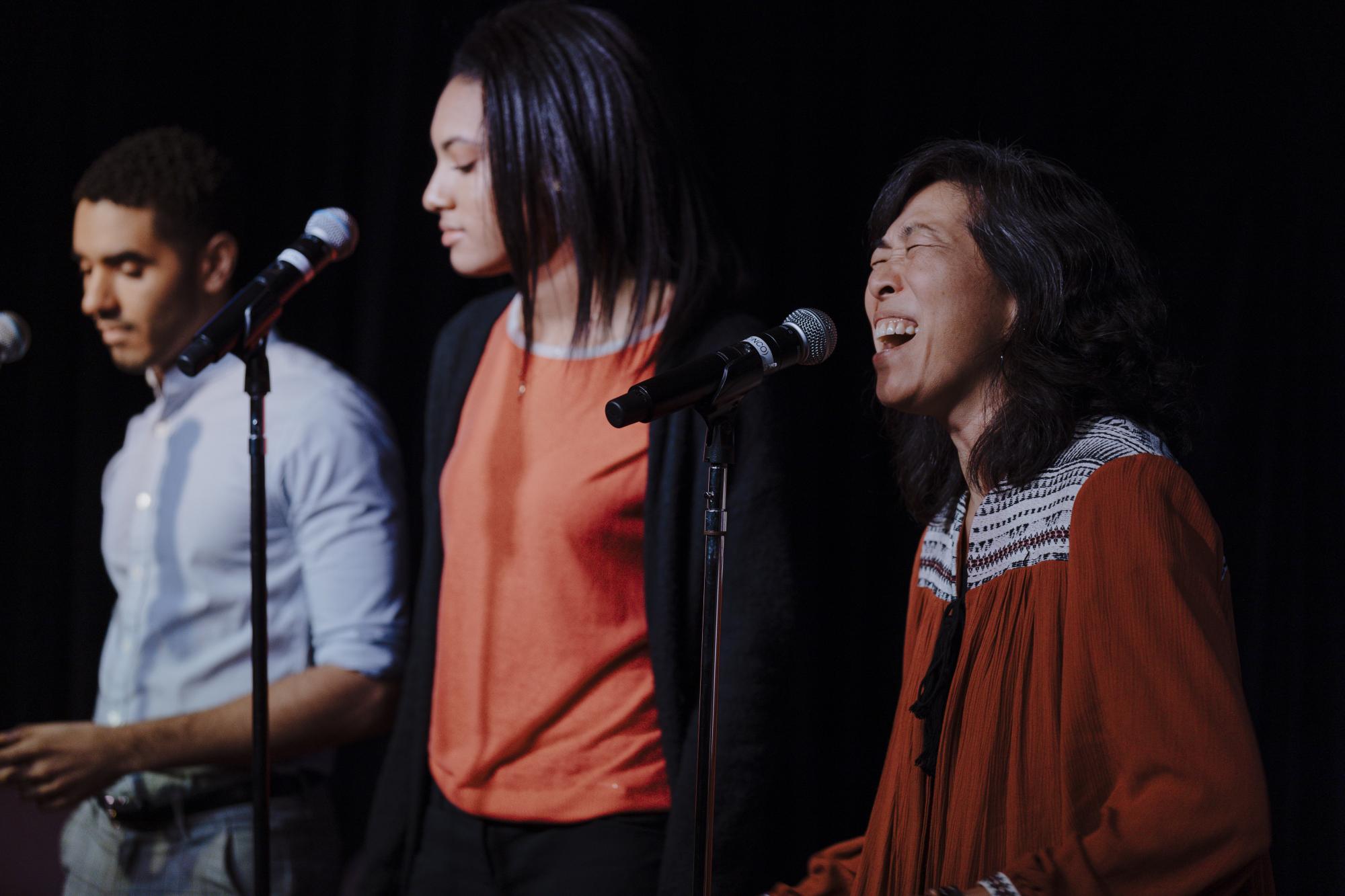Paula Cole's Hard-Earned Advice for Dealing with Success
Success in the music industry—a hit single, a platinum album—is a goal for many musicians. But it can also pose serious challenges to maintaining mental and physical health. In a recent conversation with Berklee students and staff, singer-songwriter Paula Cole shared her own struggles and talked about her strategies for staying healthy.
Cole, a visiting scholar in the Voice Department, talked with staff members Leah Driscoll, director of Student Wellness Promotion and Services, and Nicole Mlynczak, associate director of Career Services. She spoke highly of the musicians she met during her time as a student at Berklee, some of whom she has worked with for years.
“We’re here today because we love music. We’re here because we support each other in our becoming.”
—Paula Cole B.M. ’90
After graduating from Berklee (and turning down a record deal), Cole worked as a waitress while writing the songs that would compose her first album, Harbinger. The album garnered some attention, but her second album, This Fire, went double platinum and catapulted Cole to the top of the pop music scene. “Success happened so fast that it really messed with my head and heart and soul,” she said, recounting a difficult emotional time when she was touring Germany. “I walked in the Black Forest and I literally hugged trees,” she said, recalling several shows that were canceled “because I couldn’t stop crying.” After that, she took a seven-year hiatus from the music industry to regroup and raise her daughter, Sky.
Cole talked with Mlynczak and Driscoll about things she considers essential to mental health. “Sleep is huge,” she said with a laugh. She also urged students to get out into nature, eschewing (when possible) the typical sleep-deprived musician’s schedule. “I buy myself fresh flowers,” she added. “And getting out into the sunlight is key.”
After performing “Elegy,” a song that speaks tellingly about a young girl who is watching her mother’s struggles with mental health, Cole read a closing meditation about the importance of music and its potential impact on the world. “We’re here today because we love music,” she began. “We’re here because we support each other in our becoming.” She went on to emphasize the progress made by musicians, artists, and women who cared about social justice and fought for equality. “You are the politicians of the future,” she told her audience, quoting Pablo Picasso. “You are the artists of the future. So do not be silent. Speak your truth. Be the best human being you can be. Your music will become even greater, and you will make a difference.”






